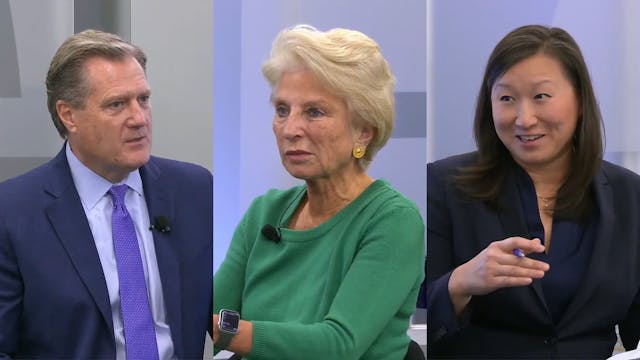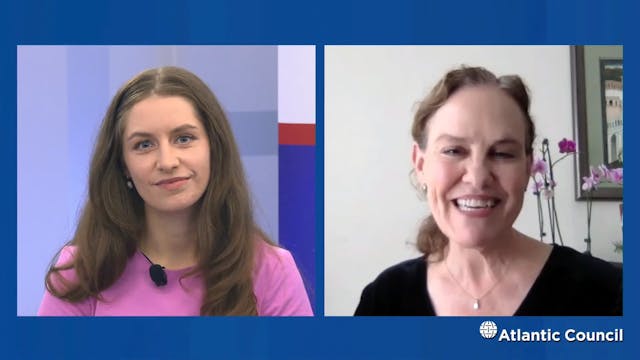Secure supply chains: How can the US succeed against China and Russia?
Scowcroft Center for Strategy and Security
•
50m
SECURE SUPPLY CHAINS AND THE RACE FOR ADVANCED TECHNOLOGIES: HOW CAN THE UNITED STATES SUCCEED AGAINST CHINA AND RUSSIA? - Representative Michael McCaul (R-TX), lead Republican of the House Foreign Affairs Committee, joined the Atlantic Council for a conversation on China, securing supply chains, and the race for advanced technologies. Rep. McCaul was an author of the recently passed CHIPS for America Act, and has been a leading voice on supply chain dependencies involving China.
With the world entering an era of strategic competition, the United States and its allies have become dependent on China and Russia across a range of critical economic sectors, from pharmaceuticals and lithium ion batteries to energy and rare earth minerals. Moscow and Beijing look to use their economic leverage to coerce vulnerable democracies to accede to their political demands. At the same time, China is pursuing a systematic effort to win the race for advanced technologies, and has invested heavily in research and development in advanced technologies, from AI to quantum computing to hypersonic missiles.How can the United States and its allies address these critical challenges? Are new strategies or alliances needed on trade or technology? Does the US need to strengthen export controls with respect to China? How can the democratic world succeed in the growing strategic competition with autocratic rivals?
This was the first in a series of Scowcroft Center and Global China Hub events to engage policymakers on a bipartisan basis on issues relating to secure supply chains, technology competition, and related challenges posed by China and Russia.
The Scowcroft Center released two reports related to these topics. The first, "A Democratic Trade Partnership: Ally Shoring to Counter Coercion and Secure Supply Chains," proposes an integrated and systematic framework for the United States and its allies and partners to coordinate on economic challenges posed by revisionist autocracies and foster free, fair, and secure trade. This report is co-authored by Ash Jain and Matthew Kroenig, with Marianne Schneider-Petsinger.
The second report, "Toward a Democratic Technology Alliance: An Innovation Edge that Favors Freedom," proposes a new entity for cooperation that would ensure that the free world prevails in the race for advanced technologies by jointly investing in innovation, countering unfair practices, and developing rules and norms consistent with democratic values. This report is co-authored by Ash Jain and Matthew Kroenig.
ORIGINAL AIRDATE: 10/3/22
Up Next in Scowcroft Center for Strategy and Security
-
Intelligence community and intelligen...
INTELLIGENCE COMMUNITY AND INTELLIGENCE COMMITTEE REFORM - The House Permanent Select Committee on Intelligence (HPSCI) is undertaking a number of initiatives to adjust the Committee’s work away from the counterterrorism focus of the last twenty years and toward strategic collection and analysis ...
-
Michèle Flournoy on deterring China i...
HOW CAN WE DETER CHINA IN THE 2020S? A CONVERSATION WITH MICHÈLE FLOURNOY - While the United States has long planned to prevent a Sino-Taiwanese war, President Xi Jinping has made abundantly clear that “reunifying” Taiwan with China is a legacy goal. As Beijing rapidly modernizes its military, Ch...
-
Practicing Twenty-First-Century Diplo...
PRACTICING TWENTY-FIRST-CENTURY DIPLOMACY: A CONVERSATION WITH AMBASSADOR DERECK J. HOGAN - What are the key practices and tools, including technology, that diplomats must harness to capably exercise diplomacy in the twenty-first century? The world is in a new, more contested era, marked by a ret...



